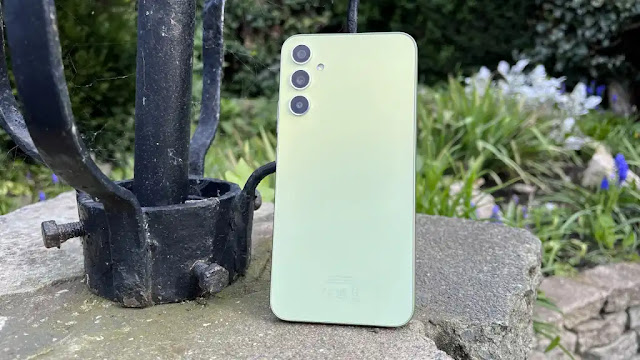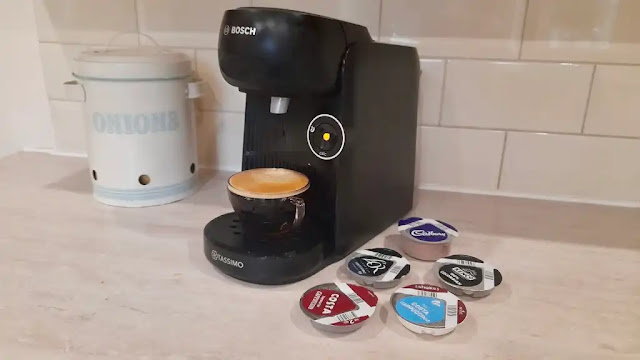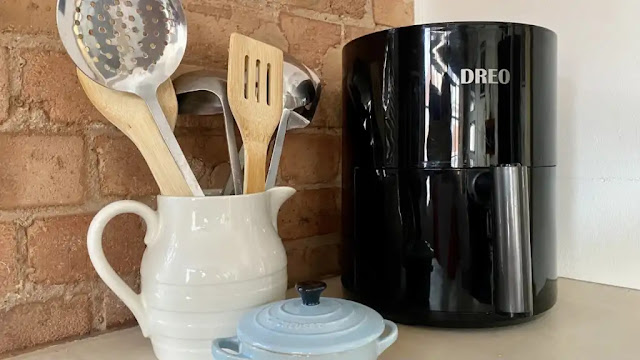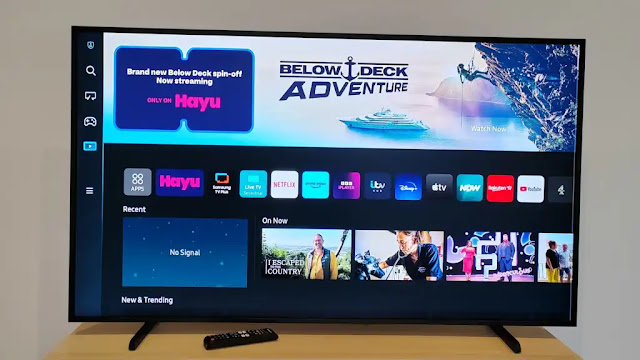A smart thermostat that lets you decide how hot a room can be, any time, from anywhere. We've refreshed our Genius review for the 2021 product range.
Should I Buy The Genius?
Pros
- Easy to use
- Efficient
- Highly customisable
Cons
- Initially expensive
- UK only
Our Verdict
Price When Reviewed
- Not available in US
Around since 2012, Genius offers smart heating control that learns when you use each room of your house.
Available only in the UK, it allows you to automatically and remotely control each radiator, and build on this. And it lets you do so from any web-connected device.
Then you can either set your desired temperature for each room according to the time of day, or let the system watch and learn from your room occupancy, and set temperatures and timings appropriately.
In effect Genius makes any home a smart home, allowing you to remotely control the heating in every part of the house, as well as the hot water. It also offers other connected devices such as smart plugs and sensors, all controlled by a central hub and accessed via a mobile app or web page. And it lets you view historical usage.
So - critically - it should mean you have a warm and comfortable house, with hot water, without using any more power than you absolutely need. Thus, in principle, over time Genius will save you money as well as making your home more comfortable.
Genius says it has empirical evidence that its users can save back the cost of installation in four years, and that on average consumers save 33 percent on their heating bills. We can't vouch for this, but the principle is clear. (See also: The best smart thermostat.)
What's New?
Genius' big upgrade came in 2019. The system became more stable and sophisticated, the platform evolved to allow for more creativity for technical types, and there were new, more high-end components.
In 2021 there are two new pieces of hardware: the Genius Room Thermostat, and the Powered Room Thermostat.
The Genius Room Thermostat will likely form a part of all new customers' Genius setup. Visually it is a significant upgrade on the previous model - a sleek and stylish white box on which numbers are displayed backlit in brilliant white.
It measures the room temperature and allows you to manually boost the temperature for a short while by pressing the up/down button. Great if you have guest who don't have access to your app but need to change the setting. You can also see the room's humidity at the touch of a button.
It comes with x3 AA batteries that are rated to last for two years, and costs £79.99 inc VAT.
The other new device is the £99 inc VAT Powered Room Thermostat. This is a similar device, wired in and with a temperature probe, that can be used to control underfloor heating or an electric heater.
Overall, Genius continues to become ever more focused in its offering to customers. The company has a vibrant B2B business supplying smart heating to hotels, landlords with multiple large properties, and corporate offices. This as befits a company who makes a domestic product chiefly aimed at large multi occupant homes, with a major focus on reducing power consumption.
The market has changed too. As well as the familiar off-the-peg but limited systems provided by energy suppliers, it is now possible to buy Z-Wave components such as form parts of the Genius set up. People can, and do, zone their radiators with such components.
What Genius offers is more reliable than just buying components, however. Its unique selling point is a bespoke zoned system, created for your home. That's the smartness. It offers plug and play, with sophistication and peace of mind, plus the opportunity for coders to build out smart home functionality on top of the initial platform.
This is reflected in some upcoming developments, such as compatibility with high-end home automation systems ELAN and Control4 (coming soon). Genius is for large and complicated homes, and those customers who want a system that is very customisable. It's business grade technology for your home.
More obviously high end are the colour valves for controlling radiators. Genius can colour match valves for your home, right up to colour matching cast iron valves to high-end rads.
Also new in 2019 was a Motion Sensor. This tiny little device attaches discreetly to wall or ceiling, and simply recognises when a room is occupied. You then enable a setting for that room which combines occupancy and a schedule using one of the software features: Sense Mode.
We have it in our front room, which is regularly occupied a specific times on days when my children are in school and nursery, and my wife and I are not working, or working from home. But if we are both office based and the kids are in after school clubs, not so much.
You can also use multi-hub login, which allows a user to run two or more hubs and in effect operate them as one. This allows for a large building to be operated as one, and makes the system more scalable. Again, more likely a B2B thing than for home use, but if you have a large home of older construction, you may need two hubs to stretch to every room of the house.
On the techie side, Genius has now made available an API that allows those so inclined to add in their own devices and functionality. This all speaks to the same idea, which has been part of Genius from the outset. It is not the cheap option, but it offers a level of bespoke comfort and style in a way that for large properties will be cost effective.
What It Costs
Price is important, because as outlined Genius isn't the cheap option in this space.
The base Genius Starter Kit, which will control valves around your home and switch the hot water on and off, costs £249.99 inc VAT. Being able to control, measure and - as a fall back - change the temperature of your water sets you back another £54.
Basic radiator valves costs £59.99 a piece, and you will need at least a couple to make the system even remotely worth installing. So at the most basic level you could be up and running for less than five hundred quid. It does add up though.
A room thermostat is a nice add on as it lets you measure and manually control the ambient heat. It isn't necessary, but can be purchased for £69.99. And a single channel or dual channel receiver is an add on to the Genius Hub which allows you to manually switch on and off your heating and water. Or, they can control multiple plumbed zoned valves, often found in larger or new build homes, and this is something that the other thermostats can't cope with like Genius can. These costs £49.99 or £59.99.
You can add in smart plugs to your system for £39.99, and room sensors to measure and manage temperature by occupancy for £44.99 a piece. And for the truly house proud coloured valves cost £89.99.
Finally, Genius will create a system and ship it to you, and if you are comfortable getting your hands dirty you can fit it yourself. More likely you will pay an expert plumber/fitter to do the job for you, and Genius now have a handy map on its website on the 'how to buy' page to direct you to your local heating engineer who has experience fitting the system.
So cost will range from a very basic system at £414.97, up to whatever you want to pay. To buy and fit new the system in my own five bed three bathroom house (with three smart plugs, room sensor, smart thermostat, six heating zones (two with colour), and a hot water heater) would cost somewhere in the region of £1,264.85.
That's a lot, but there are two critical points to make here about the modular nature of Genius. For one this system is not for every home, but if you have a large multi-occupancy properly, particularly an old one in which not all areas are used all the time, Genius may be a good investment.
Also: you don't have to make the investment all at once. Our system first went in back in 2015, and we have added rooms and functions regularly over the past while. The price has become better value as the cost has risen, frankly, as at the lower price point the more basic Nest and Hive systems do a similar job for less.
One final point. Expensive doesn't mean poor value, and we can benchmark this in the market. Genius' biggest direct competitors are Evohome and Tado, and in both cases a like-for-like product comparison comes out about even.
How Genius Compares To The Market
As we have described, this is not a Nest or a Hive - it is much more sophisticated, and somewhat more expensive than those products.
Hive or Nest is, in essence, a dumb on-off switch that allows you to remotely switch on and off your heating. It will allow you to set a temperature, but only from a single thermostat (or in the case of the latest Hive, several thermostats). For a smaller modern house, that is generally sufficient. And it is a lot more efficient than a timer-based heating system.
Genius is better, though. For one thing the company tells us it has yet to find the house within which it won't work, regardless of type of boiler.
A true IoT system, it creates a network of connected devices around your home. That in turn allows you to zone off living areas. Then you can set desired temperatures for each based on your occupancy of those areas. What's great is the modular nature of Genius.
You can get the Hive or Nest experience by simply buying the Genius Kit base system. Adding in valves and sensors as you desire to zone off additional areas of the house. So you are paying only for the tech you use - not forgetting that you can move the zones as your needs change.
Basically, if you have a large property, with areas that are regularly unoccupied, Genius is the ideal product for you. And you are guaranteed peace of mind. Genius will create a bespoke system for your home, fit it for you, and the support remains excellent and constant throughout the life of your system.
The Genius Hub
On 21 November 2016 Genius started shipping its new 'Genius Hub' system to consumers. This builds on the existing zoned heating system and offers some significant upgrades.
For one thing the kit looks better: the new thermostat is small and stylish, and connects wirelessly. It replaces an older thermostat that was wired into the wall and didn't do a lot other than confuse guests who presumed it controlled the heating. With the new thermostat you can stick it anywhere in the house and in effect create a new, movable zone.
As well as measuring the temperature, it allows you to manually set the temperature for a particular length of time. So when Granny visits it is trivial to make things warmer.
Going wireless and being able to be placed anywhere means you can measure ambient temperature at a sensible point that accurately reflects the feel of the house, rather than a fixed point in a drafty hallway or above a radiator. (And it really is small: ours mostly lives in the unzoned dining room, behind a picture frame on a shelf.)
The Genius Hub itself is also smaller and more attractive. This matters as the previous model was somewhat bulky and resembled the mini PC that it truly was. Given that it needs to be connected to the router this wasn't ideal in terms of space and the attractiveness of your home.
The new slimline device is, if anything, an advert for Genius, as curious visitors may be minded to ask just what is that slick piece of digital home kit.
The new system effortlessly reaches throughout our current abode, despite having to go further and through thicker walls. (It's better than our Wi-Fi network that is still a little flaky with an extender installed.) This is important, given that Genius' core constituency is large, older properties.
App
Let's talk about the app via which you control your Genius network. In the past this was functional without being pretty, and some of the language was a bit technical. Function is everything in an app that controls a system, and the Genius app is simple to use in terms of operating the heating and setting a schedule.
You can access the app on Android and iOS devices, and via the open web. It looks great, and is very easy and intuitive to use. Genius has managed to pull off the clever trick of putting installer-level settings into the app, but making them easier to use. This is principally because of the 'Settings' and 'Doctor' areas of the app, accessed from the main menu.
'Settings' gives you access to a list of all the devices on the system. It shows you when each device last communicated with the hub, and shows its battery life where appropriate. It also allows you to Ping the device, which will kick into gear a valve that isn't playing for some reason, on the very rare occasions we have experienced that.
Other options include configuration, updates and removal of the device. You're not going to need this page often, if at all, but knowing that this level of control is available and easy to understand is a good thing.
As is the 'Doctor'. This is a series of in-app wizards that allow you to solve problems in natural language and with no technical knowledge.
Simply by answering questions about the issue you are looking to solve, the Doctor points you in the direction of a solution, taking you through required remedial action step by step. And the app alerts you to issues that your system may have via a large red 'Issues' pane at the top of the app home screen.
We used the Doctor to fix a problem with a radiator valve that had been incorrectly set up in the factory. Simply by answering the questions asked it showed us how to reset the device and re-connect it to the network. A really smart result, that will give end users a lot of confidence in the system (and keep them off tech support phone lines).
Genius does offer tech support during office hours, however.
In Use
We had Genius in our previous, three-bedroomed semi-detached home, and we loved it. We just love the level of control over heating and - via smartplugs - lights and the kettle, to the extent that any money-saving aspect feels like a secondary issue. Being able to remotely control the heating is useful and cool.
And it definitely reduces our power usage. Over time you heat only what you need to heat. And because you know that you can set a temperature in advance you don't waste time and energy pre-heating spaces. (Plus, with a burgeoning family being able to heat the kettle at 5am to make a bottle at 6am is a life- and sleep saver.)
The smart plugs are surprisingly useful. I have an office - little more than a shed - in the garden that I use semi frequently. Being able to heat it for an hour via a plug in radiator is an absolute boon. We also control lights and - yes - the kettle via smart plugs on timers.
Aside from the cost, the only negative associations my wife and I have ever had with Genius were the relatively ugly, relatively big and relatively bulky early editions of the Hub, and the fact that on the very rare occasions on which things went wrong the app wasn't particularly helpful (phone-based support was).
Neither was a huge issue, but in digital kit visuals matter, and as you can't tune in a digital radio you need to be confident that any digital system will just work - or be fixable when it breaks.
The only other thing to note was that in a smaller house we needed two smart plugs to ensure the network was sufficiently robust. And we had to use Powerline adaptors to place the hub in the kitchen away from the router, but closer to the radiator action.
Moving to a bigger house at exactly the same time as the updated Genius Kit is launched was serendipity, honest. But it was great to get the new system up and running, testing what was then a beta of the new app with the all-new hardware.
The (minor) issues with the old system are all solved here.
The new hardware is slender and stylish. Being able to move the thermostat around, and use it to set the temperature, adds a new layer of intuitive functionality. And the app is - as outlined above - a massive improvement in all aspects, but in particular with the control and problem-solving capability it offers.
The major improvement is connectivity. Our house is a largish four-bedroom house with playroom, utility room, garage, front room and dining room. Parts of it were built in the 1880s, and parts in the 1980s, so it is a connectivity nightmare: for all but the Hub. It just works, and works well.
The Future
One intriguing aspect of Genius is what the future may hold. Once you have the central hub in place, and you start adding valves, sensors and smart plugs, you are creating an IoT network around your home.
Genius hasn't announced any concrete plans to add to the main heating focus of the network, but says that the new setup's use of If This Then That (IFTTT) makes it easy to set up 'recipes' with third-party devices.
It says that you can 'easily set your Genius system to interact with 376 other devices and online services'. So you could use your location-enabled smartphone to switch on your heating when you're close to home and off when you leave, or - as I have done - set up a sensor behind the front door so that you know when someone else walks in.
This gets really interesting if, and when, Genius persuades hardware manufacturers to make or adapt other devices to its system.
It can't be too long before customers with zoned heating systems are able to set up IP cameras, or other connected devices that can be controlled remotely and set to a timer.
In our house we already use three smartplugs to remotely control lights in the front room and an electric radiator (with a temperature sensor) in my garden office. So throwing forward it may be sensible to think of Genius as a true smart home network in the making.
Verdict
Genius is very good at a very useful thing. It is easy to use and efficient, and over time it may even save you the cost of installation. And it is fairly priced, but far from cheap. How long Genius takes to pay for itself will depend on your circumstances, and it may be that dropping £800 to £1,200 or more is too much of a long-term investment for you.
But it is a great product, and if you are looking to install in your home a zoned smart heating system, we are happy to recommend Genius - not least because of its potential as a true smart home network for your house.
Specs
- Genius Hub
- TRVs
- TRV adaptors
- Manual switch
- Smart thermostat
- Smartplugs



















0 comments:
Post a Comment